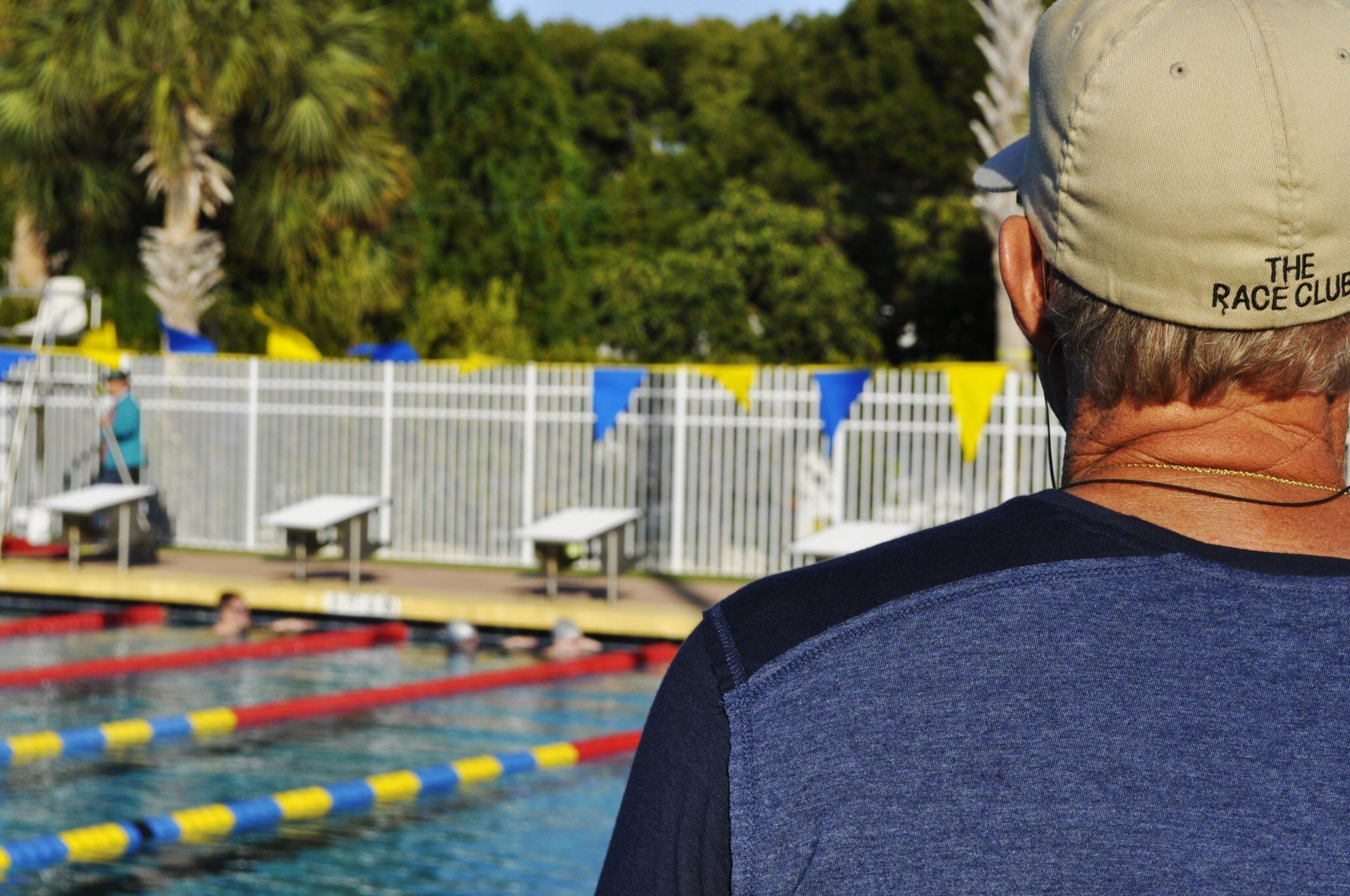What is The Art of Swim Parenting?
Courtesy of Gary Hall Sr., 10-time World Record Holder, 3-time Olympian, 1976 Olympic Games US Flag-bearer and The Race Club co-founder. (Swimmer in photo: George Bovell)

Being a swim parent is not easy. If it were, we would likely have 2 million registered USA Swimming members, rather than 400,000. Swim parents have to be unselfish, dedicated, loving, committed and invested to help their children succeed in the sport. In this day and age, how many parents will sit on a hot bleacher or in a chlorine filled natatorium or behind a starting block, timing all weekend, for the pleasure of watching their child swim for a few minutes? Or how many children today would rather be sitting around for the same duration in the same environment waiting to race when they could be in their air-conditioned home in front of their large screen television playing Minecraft or Game of War?
Those are some of the challenges that face the sport of swimming, as well as every other sport in America. What about you as a swim parent? What challenges do you face in order to see your child truly enjoy swimming and derive the most benefit from the sport?
Every swimmer of any age who comes to The Race Club is told the same thing. It is more important to have fun than it is to win Olympic gold medals. Of course, I always make sure that when I tell the swimmer this, the parents are standing right behind them. The truth is, the message is more directed to the parents than it is to the swimmer.
Too often, parents are overzealous in their desire to help their child succeed. While they only want the very best for their child, their words of advice, criticism or even encouragement can backfire on them. To a child, these words, no matter how well intended, are often construed as feeling pressure to succeed. A swimming career should be viewed as a marathon, not a sprint. If a swimmer feels pressure coming from the parents or coach for too long a period of time, he or she will often rebel and quit the sport. If not, then swimming ceases to be fun. Either way, the child loses out.
I learned a great deal about swim parenting from my mother. My father was a solo-practicing Orthopedic surgeon in the days before cell phones. He was on call 24/7 and could never leave the house phone. He rarely got to see me swim. My mother drove me all over the LA basin to workouts and meets and volunteered to time at most of them. She rarely said much to me, but when she did, it was always positive. Before I would compete, she would always tell me to ‘have fun’. After each race, whether good or bad, she would put her arm around me, hug me, and say ‘I love you’. Those were the only words I needed to hear.
As parents, my wife, Mary, and I had six children (3 boys, 3 girls)…all swimmers. Of course, Mary did most of the driving to meets and workouts. Once, when they were young, and dabbling in different sports, they started to get hooked on video games. I put my foot down.
“You are all going to do some sport” I told them. “I don’t care what sport, as long as you do something.” That was naïve.
“Are you kidding me?”, Mary interrupted, having overheard this conversation. “Do you think I am going to drive six kids all over this valley to different sports programs? What do you think I am, a taxi driver? No, we have a great swim club nearby. They should all swim.” So that is what they did.
All six children had different levels of ability and passion for the sport. Mary and I subscribed to my mother’s philosophy of swim parenting and basically told them to ‘have fun’ and always ‘I love you’ after each race. They all had various levels of success, but I believe that they all had fun and, for the most part, look back fondly on their swimming careers. Swimming taught each of them many valuable life lessons.
My advice to all swim parents is to do the same. When you feel the urge to critique your child for an obvious mistake, bite your lip and keep your mouth shut. Let the coach coach. Your role is supportive, emotionally and financially. If you truly want your children to enjoy swimming and you want to help them succeed, and if you want your children to swim for life, not just as children (what other sport has an age group for over 100 years of age?), then simply remember two important sentences, ‘have fun’ and ‘I love you’. Get them to swim practices and the meets. If they need help in technique and aren’t getting enough of that at practice or if they need more motivation, bring them to The Race Club. Do those things and tell them those five magical words. The rest will take care of itself.
Yours in Swimming,
Gary Sr.